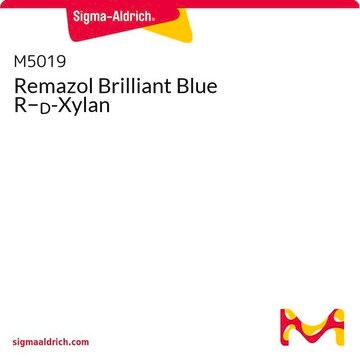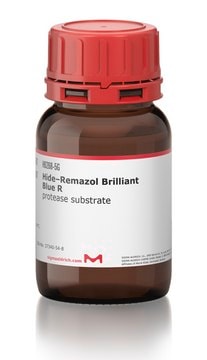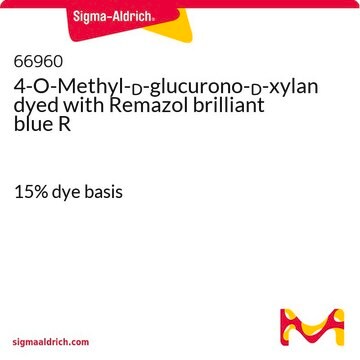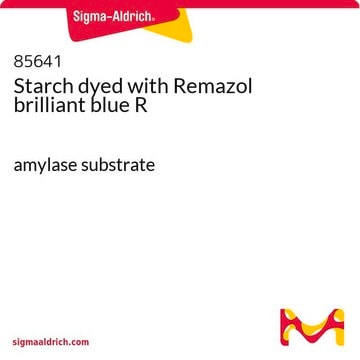R8001
Remazol Brilliant Blue R
Powder
Synonym(s):
Reactive Blue 19
About This Item
Recommended Products
product name
Remazol Brilliant Blue R, anthraquinone dye
form
powder
composition
Dye content, ~40-65%
solubility
water: 1 mg/mL, blue
application(s)
diagnostic assay manufacturing
hematology
histology
storage temp.
room temp
SMILES string
[Na+].[Na+].Nc1c2C(=O)c3ccccc3C(=O)c2c(Nc4cccc(c4)S(=O)(=O)CCOS([O-])(=O)=O)cc1S([O-])(=O)=O
InChI
1S/C22H18N2O11S3.2Na/c23-20-17(37(29,30)31)11-16(18-19(20)22(26)15-7-2-1-6-14(15)21(18)25)24-12-4-3-5-13(10-12)36(27,28)9-8-35-38(32,33)34;;/h1-7,10-11,24H,8-9,23H2,(H,29,30,31)(H,32,33,34);;/q;2*+1/p-2
InChI key
KUIXZSYWBHSYCN-UHFFFAOYSA-L
Looking for similar products? Visit Product Comparison Guide
General description
Application
Storage Class Code
11 - Combustible Solids
WGK
WGK 1
Flash Point(F)
Not applicable
Flash Point(C)
Not applicable
Personal Protective Equipment
Certificates of Analysis (COA)
Search for Certificates of Analysis (COA) by entering the products Lot/Batch Number. Lot and Batch Numbers can be found on a product’s label following the words ‘Lot’ or ‘Batch’.
Already Own This Product?
Find documentation for the products that you have recently purchased in the Document Library.
Customers Also Viewed
Our team of scientists has experience in all areas of research including Life Science, Material Science, Chemical Synthesis, Chromatography, Analytical and many others.
Contact Technical Service











